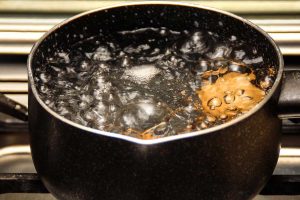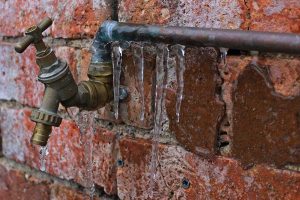This page may contain affiliate links. If you click and buy, we might get a small commission at no cost to you.
Enjoying a warm or hot shower and suddenly having the water turn cold is anyone’s nightmare. Wondering when you’ll get hot water again is common. So, how long does it take a water heater to heat up? Your water heater’s recovery rate determines how long it takes for the water tank to reheat once the hot water depletes. Depending on the type and size of your tank, the time can vary.
Read on to find out the typical recovery rate for different types of water heaters and information on what could be slowing down your water heater.
How long does it take a water heater to heat up?
Depending on the size and type of water heater, the time can range from a few seconds to over 2 hours before your water heats up again. Let’s find out how long it’ll take before you can have that nice, warm shower!
Gas storage-tank water heater
Gas water heaters are quite efficient and will heat up water fast. The tanks usually have burners on the bottom that heat the water after natural gas is burned as fuel. While various factors can determine how long it takes to heat up, the average times by different size tanks for gas water heaters to heat up are:
- 40-gallon: 30 to 40 minutes
- 50-gallon: 40 to 50 minutes
- 80-gallon: 60 to 70 minutes
Electric storage-tank water heater
Electric water heaters typically take longer to heat up when compared to gas ones. These heaters have electrical heating elements immersed inside the tank that heats up the water. The time it takes will range depending on the heating element’s wattage and how hot you set your water heater. However, the average time by different sized electric tanks are:
- 40-gallon: 60 to 80 minutes
- 50-gallon: 145 to 150 minutes
- 80-gallon: 120 to 130 minutes
Tankless water heaters
Tankless water heaters don’t have a storage tank that holds and heat water. Instead, they heat the water right before it comes out of your shower head or tap. The idea is that the hot water is available immediately once you turn on the faucet and need it. However, the flow rate will decrease when you use too much hot water, so less water is coming out even if it’s still hot.
Although both electric and gas tankless water heaters are meant to provide hot water instantly, the electric ones are slightly slower than gas. The power of a gas heater, especially in a small or medium-sized home, is more “on-demand.” In contrast, an electric power source can take a few seconds.
Solar water heater
Solar water heaters use the sun’s heat from solar panels installed on your home’s roof to collect energy that powers the water heater. These units are usually connected to an electric water heater tank and take around the same time to heat up water. So, for a 40-gallon water tank you can expect it to take between an hour and an hour and 20 minutes. However, if you don’t have a backup power source for your solar water heater, you won’t be getting any hot water at all on cloudy or rainy days.
5 Reasons your water heater is heating up slower
If your water heater isn’t heating up water at the speed it should, various factors could be impacting it. Below are the common reasons your water heater may be slower or slowing down.
1. Your home is large
Large homes usually have water heaters placed far away from the appliances needing hot water (like your shower). In this case, it can take longer for the hot water to travel along the pipes. A home with smaller pipes will also have similar issues since the smaller pipe diameters can’t carry as much hot water.
2. Your water heater is old
Like any product, water heaters will lose efficiency over time, so your unit’s condition and age matters. Older water heaters can take longer to heat up compared to the first year after you purchased it. For example, you can end up with worn heating elements due to normal wear and tear.
3. There’s sediment buildup
The dissolved minerals in your water, such as magnesium and calcium, can settle to the bottom and buildup in your water heater. Over time the buildup creates a crusted and thick layer that can prevent your water heater from heating water fast. Common signs of sediment buildup in your water heater include having significantly higher energy bills or hearing strange hissing, knocking, or popping noises from your unit.
4. The dip tube is broken
The dip tube is what pushes cold water to the bottom of your water tank for heating. When the dip tube is broken, cold water will mix with the heated water and decrease your overall water temperature.
5. You live in a colder area
The temperature of the water that needs to be heated up plays a big part in how fast you’ll get hot water. Also called the inlet water temperature, the colder this original water is, the longer it takes to heat up. So, if you live in northern states where it’s colder, it can take longer, including during the winter.



